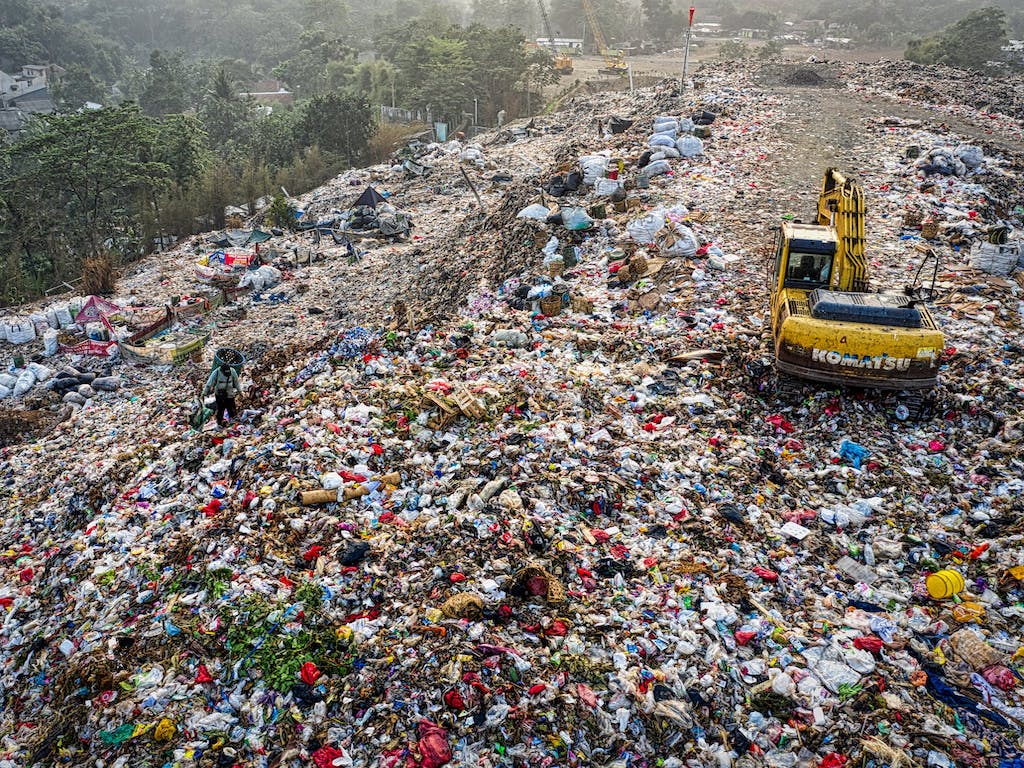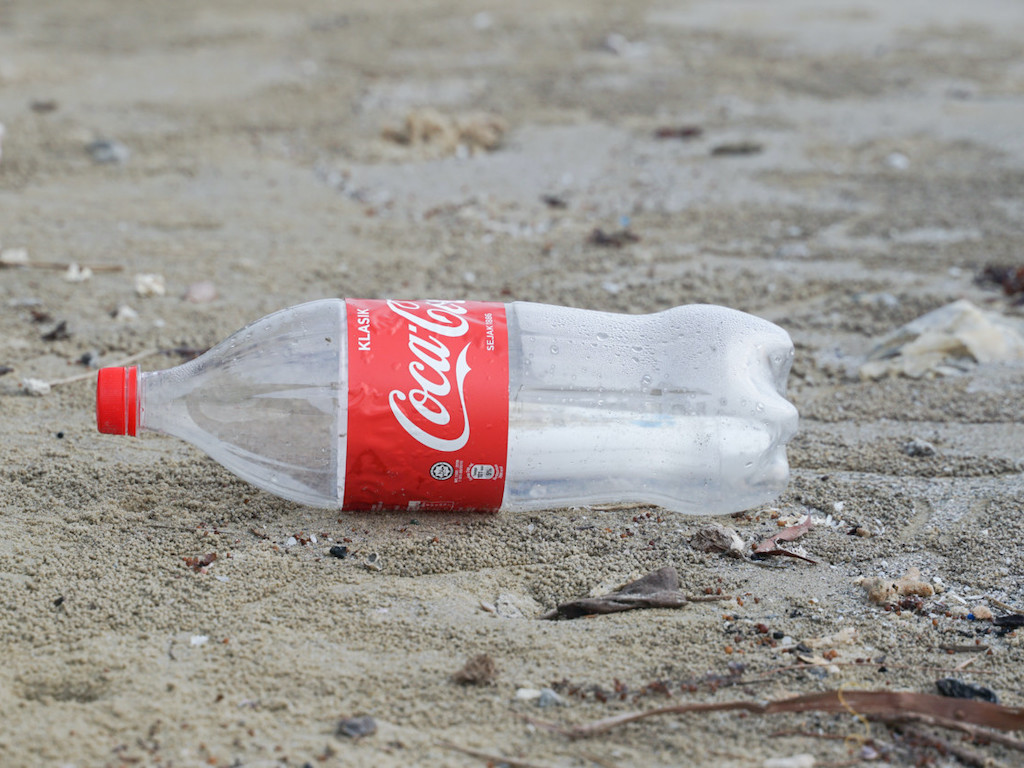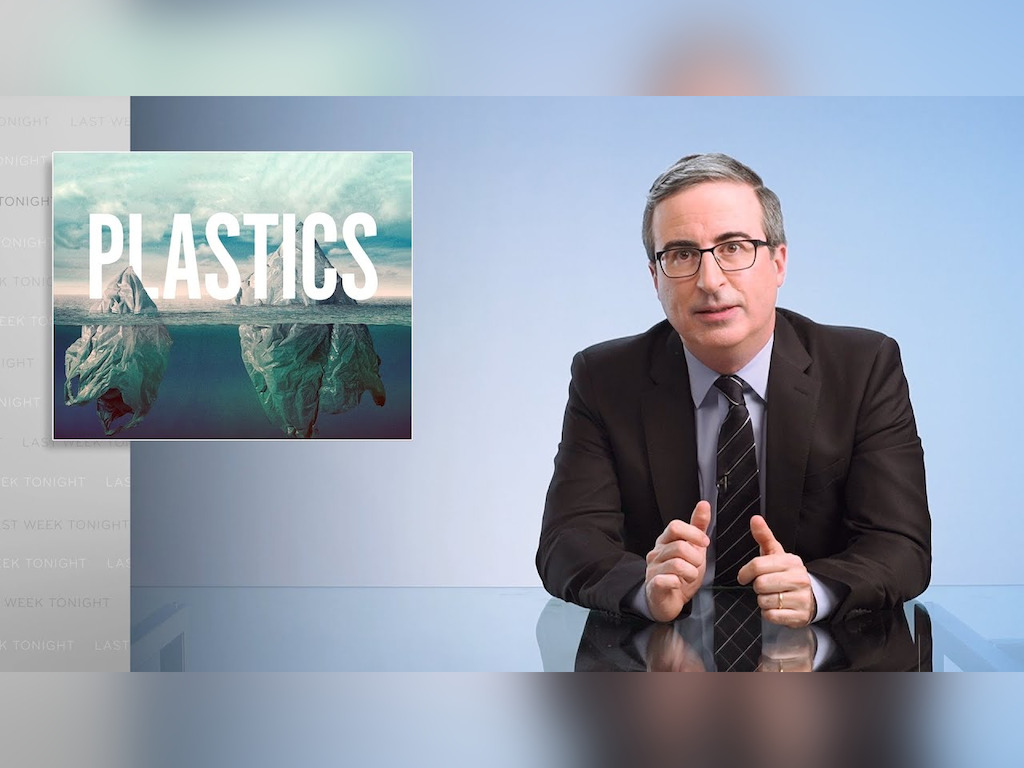5 Mins Read
In his latest episode of Last Week Tonight, the award-winning late-night talk show on HBO, host John Oliver delved into one topic often buried by everyday health and political crisis news headlines, but is on every level just as catastrophic: plastic pollution. The world has never seen more plastics littered in the ocean, piling up in overflowing landfills and even ending up in everything from rainfall to the food we eat. Dissecting the history of plastic production and the industry-propelled lies about recycling, Oliver argues that the responsibility to clean up the mess we’re in must come down to the powerful players behind our global plastic crisis.
The world of plastics is a scary one. As with every Last Week Tonight episode, Oliver unpacks the issue, dishing out the staggering statistics about the scale of our global plastic pollution crisis, from the real possibility that plastic will outweigh fish in the ocean by 2050, to the fact that we’re ingesting more plastic than we can probably count.
Some estimates say humans could be eating and breathing as many as 50,000 particles of microplastic each year, with traces detected in everything from ocean spray to rain and sea salt. It’s even being detected in the blood and urine samples of young children, thanks to the widespread use of plastics in food containers, baby bottles, toys – you name it.
Scientists have warned that plastic pollution is so severe that even if we slashed plastic use by 80%, we would still be left with an astonishing 710 million tonnes of plastic left on the Earth to deal with.
The Last Week Tonight host also points out to the shocking portion of plastic that isn’t even being recycled, despite many of us – with our very best intentions – thinking we are. In the U.S., most of the collected plastic waste, much of it contaminated and difficult-to-recycle, had been shipped off to China, until the country decided to implement a ban on imports.
Our personal behaviour is not the main culprit here, despite what the plastics industry has spent decades and millions of dollars trying to convince us.
Now, this toxic waste is ending up on the shores of Southeast Asian countries like Myanmar, Vietnam and Indonesia with communities left to handle the garbage, often in health damaging ways like burning plastic as toxic fuel.
Despite knowing all this – that as much as 90% of the plastic simply can’t be recycled – industry giants have been continuing to fuel the idea that we, consumers, are to blame. Oliver puts plastic industry heavyweights at the centre of the crisis, driving misinformation through advertising campaigns about recycling while in private, admitting that recycling all the plastic we’re going through each year is an economically impossible task.

The plastic industry’s response to all the damage you’ve seen is to make a big show of tiny improvement and then revert to what they’ve always done.
“Honestly, it wasn’t all that difficult for them to convince us that all their waste is recyclable, because we so badly want to believe it,” said Oliver. “Lies go down easier when you want them to be true.”
He continues: “Frustratingly, the plastic industry’s response to all the damage you’ve seen is to make a big show of tiny improvement and then revert to what they’ve always done, which is heavily push the idea that if we as consumers simply tried hard enough, we could make our plastic problem go away.”
Take bottled drinks giants like Coca-Cola, PepsiCo and Nestlé, for instance, who year after year top the list for being the world’s biggest polluters, showing little real progress despite their public-facing sustainability pledges.
All this isn’t to say that we should all give up on recycling – rates do vary between and within countries, depending on the regional infrastructure available, and we should all strive to cut unnecessary plastic consumption in our everyday spending purchases and lifestyle choices, reusing and repurposing as much as we can.

The real behaviour change has to come from plastics manufacturers themselves…We have to make them internalise the costs of the pollution that they are creating.
But Oliver makes the salient point that our behavioural shifts won’t create meaningful change in treating the larger issue at hand: the fact that the producers aren’t stopping.
“Our personal behaviour is not the main culprit here, despite what the plastics industry has spent decades and millions of dollars trying to convince us.”
To answer the question of what needs to be done, Oliver believes that rules and regulations like the polluter pays principle – known as PPP – will help govern the industry and finally shift the cost of recycling and pollution to those actually responsible for it.
“The real behaviour change has to come from plastics manufacturers themselves. Without that, nothing significant is going to happen. We have to make them internalise the costs of the pollution that they are creating,” he argues.
“It is obvious that meaningful change is only going to come from being able to force this very powerful industry to do things that it has shown for half a century it has absolutely no interest in doing,” he says. “We have to make them change.”
Lead image courtesy of Last Week Tonight HBO.




